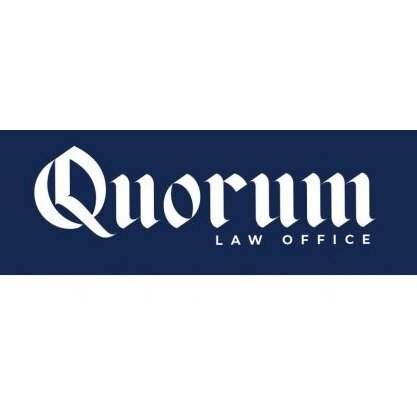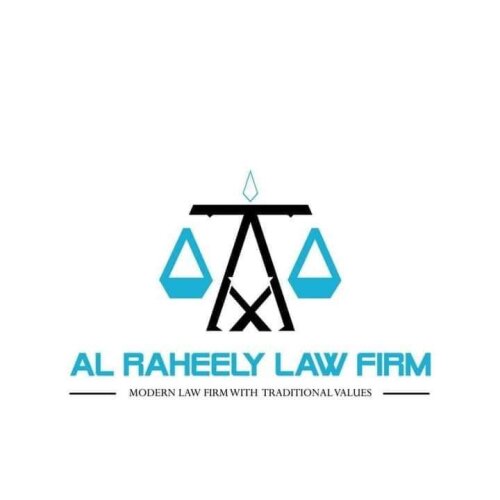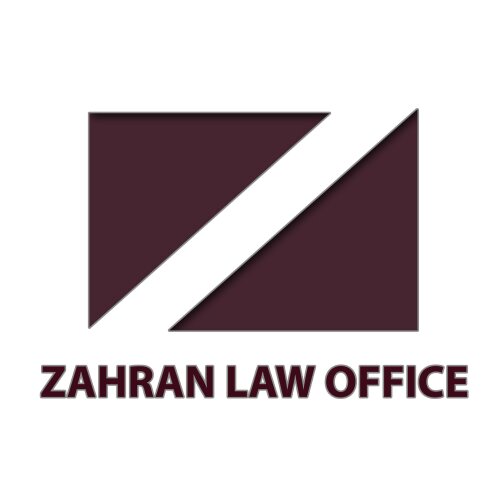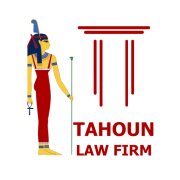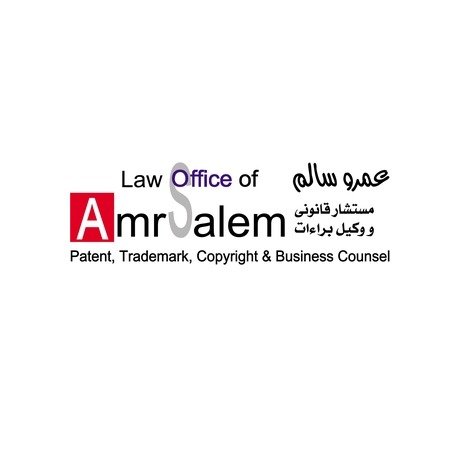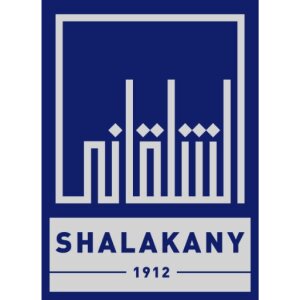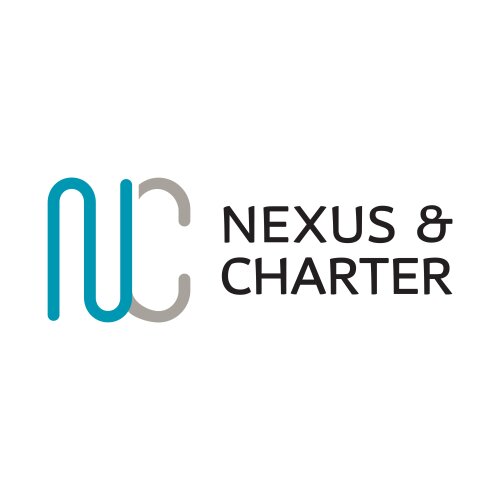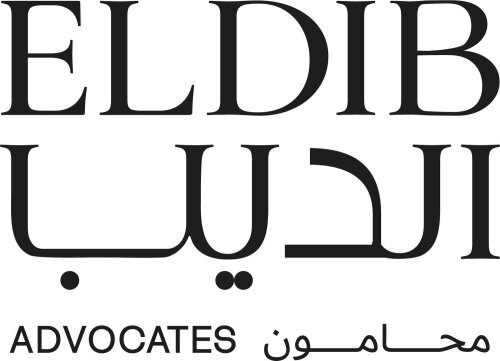Best Mining Law Lawyers in Cairo
Share your needs with us, get contacted by law firms.
Free. Takes 2 min.
List of the best lawyers in Cairo, Egypt
About Mining Law in Cairo, Egypt
Mining Law in Cairo, Egypt governs the exploration, extraction and processing of mineral resources within Egyptian territories. The legal framework defines the rights and responsibilities of individuals and companies engaged in mining activities. It seeks to balance the exploitation of valuable minerals with environmental protection, worker safety and the interests of the Egyptian state. Central to Mining Law in Egypt is the Law on Mineral Wealth, which was most recently reformed in 2019. Cairo, as the administrative and legal hub of Egypt, hosts many of the regulatory agencies and courts relevant to mining operations. Whether you are a local entrepreneur or a foreign investor, understanding the legal landscape is crucial when engaging in mining in Egypt.
Why You May Need a Lawyer
Engaging a lawyer with experience in Mining Law is essential in several situations:
- Securing exploration and mining licenses and navigating complex regulatory frameworks
- Negotiating investment agreements and joint ventures with Egyptian stakeholders or government bodies
- Conducting due diligence for mergers, acquisitions, or asset purchases involving mining interests
- Addressing disputes regarding property rights, environmental breaches, or contractual obligations
- Dealing with regulatory inspections or investigations and ensuring ongoing legal compliance
- Resolving taxation or royalty assessment issues with Egyptian authorities
- Protecting intellectual property such as mining technology or geological data
- Advising on local labor laws for mining operations
Mining Law in Egypt is intricate and frequently updated. Having qualified legal counsel ensures that you meet all legal requirements, minimize risk and protect your interests.
Local Laws Overview
The foundation of Mining Law in Egypt is Law No. 198 of 2014, as amended by Law No. 145 of 2019, known as the Mineral Resources Law. This law regulates prospecting, exploration, exploitation, and investment in minerals.
Key aspects include:
- Licensing System: All exploration, extraction, and use of minerals (excluding oil and gas) require licenses that are granted by the Egyptian Mineral Resources Authority (EMRA).
- Royalties and State Participation: License holders must pay royalties and sometimes allow government participation in mining projects based on arrangements set by EMRA and the Ministry of Petroleum and Mineral Resources.
- Land Use and Environmental Protection: Mining operations must comply with land and environmental regulations. Impact assessments and restoration plans are often compulsory.
- Regulatory Oversight: Various government entities, including EMRA and regional authorities in Cairo, monitor and enforce the law.
- Investment Protections: Egypt encourages foreign investment in mining, but certain areas may have restrictions or require local partnerships.
- Labor and Health Standards: There are strict obligations regarding the health and safety of workers in mines, with required compliance inspections.
It is vital to be aware of both national mining laws and local regulations in the Cairo area, as particular circumstances may influence the permitting process and operational obligations.
Frequently Asked Questions
What minerals are covered under Egyptian Mining Law?
Mining Law covers all minerals except for oil, natural gas and certain building materials. Gold, copper, phosphate, limestone and precious stones are among the minerals regulated.
Who can apply for mining or exploration licenses in Cairo?
Both Egyptian and foreign entities, including individuals and companies, can apply. Applicants must meet specific legal and financial qualifications.
How are mining licenses obtained in Egypt?
Licenses are typically obtained through applications submitted to EMRA. Public auctions or tenders may also be organized for certain mineral-rich zones.
Are there any restrictions on foreign ownership in mining projects?
Foreign investment is generally permitted, though some projects may require a local partner or have limitations in sensitive locations depending on national interests.
What are the main regulatory bodies involved in Mining Law in Cairo?
The primary regulators are the Egyptian Mineral Resources Authority (EMRA), the Ministry of Petroleum and Mineral Resources, and in some cases, regional environmental authorities.
What royalties or taxes apply to mining companies in Egypt?
Mining companies must pay state-mandated royalties, a signature bonus in some cases, and corporate tax. Royalty rates vary depending on the mineral and project terms.
How are environmental concerns addressed in mining operations?
Mining activity requires rigorous environmental impact assessments and the implementation of mitigation plans. Non-compliance can result in sanctions or license revocation.
What legal recourse is available in the event of a dispute?
Disputes may be resolved through negotiation, local courts or, if agreed, international arbitration. Contracts should specify the preferred dispute resolution method.
Can licenses be transferred or sold to another entity?
Transfer of mining licenses is possible but requires official approval and compliance with legal procedures set by EMRA and relevant authorities.
What steps should be taken to start a mining business in Cairo?
Key steps include conducting geological surveys, securing necessary licenses, negotiating land access, preparing environmental documentation, and ensuring compliance with Egyptian company and tax laws.
Additional Resources
If you are seeking more information or assistance, the following resources can be helpful:
- Egyptian Mineral Resources Authority (EMRA): The main regulatory agency for mining operations, licensing, and compliance.
- Ministry of Petroleum and Mineral Resources: Responsible for policy development, mining regulations, and investment oversight.
- General Authority for Investment and Free Zones (GAFI): Provides guidance for foreign investors and company formation.
- Environmental Affairs Agency: Oversight of environmental compliance in mining projects.
- Cairo Chamber of Commerce: Offers legal information and business networking relevant to mining.
- Local law firms specializing in Mining Law: Essential for case-specific guidance.
Next Steps
If you require legal assistance in Mining Law in Cairo, start by gathering all relevant documents relating to your project or interests. Identify your primary legal need, such as licensing, contract negotiation or dispute resolution. Consult with a lawyer who has in-depth experience in Egyptian Mining Law and familiarity with local regulations in Cairo. Schedule an initial consultation to outline your objectives and potential challenges. Stay updated on changes in Mining Law and maintain communication with regulatory agencies. Working closely with professional legal counsel will help safeguard your interests and ensure full compliance with Egyptian law.
Lawzana helps you find the best lawyers and law firms in Cairo through a curated and pre-screened list of qualified legal professionals. Our platform offers rankings and detailed profiles of attorneys and law firms, allowing you to compare based on practice areas, including Mining Law, experience, and client feedback.
Each profile includes a description of the firm's areas of practice, client reviews, team members and partners, year of establishment, spoken languages, office locations, contact information, social media presence, and any published articles or resources. Most firms on our platform speak English and are experienced in both local and international legal matters.
Get a quote from top-rated law firms in Cairo, Egypt — quickly, securely, and without unnecessary hassle.
Disclaimer:
The information provided on this page is for general informational purposes only and does not constitute legal advice. While we strive to ensure the accuracy and relevance of the content, legal information may change over time, and interpretations of the law can vary. You should always consult with a qualified legal professional for advice specific to your situation.
We disclaim all liability for actions taken or not taken based on the content of this page. If you believe any information is incorrect or outdated, please contact us, and we will review and update it where appropriate.



